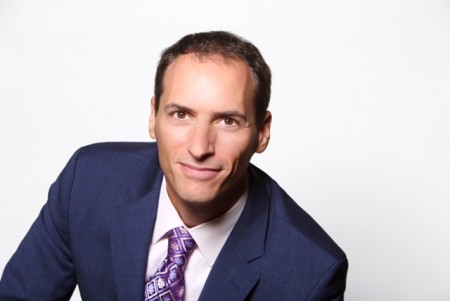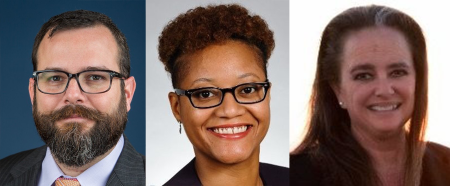The return of the Master's Conference and honing your skills in a post-pandemic legal market

Ari Kaplan. Photo by Lauren Hillary.
Ari Kaplan recently spoke with members of the board of directors for the Master's Conference, including Rick Clark, its co-founder and senior director of sales enablement and strategy with CloudNine; Monica Harris, product business manager of enterprise solutions at Cellebrite; and Marla Mohr, manager of client relations at the Association of Certified E-Discovery Specialists.
Founded in 2006, the Master’s Conference brings together leading experts and professionals from law firms, corporations and the bench to develop strategies, practices and resources for managing the information life cycle, according to its LinkedIn page.
The Master’s Conference is a boutique educational forum in which a select group of speakers, vendors and attendees convene to engage in a proactive collaboration on current challenges in the legal space, according to its LinkedIn page, including e-discovery, cybersecurity and information governance.
Ari Kaplan: Tell us about the genesis of the Master’s Conference.
Rick Clark: In 2005, Robert Childress and I were sitting in a Panera Bread with a few others trying to develop a new type of thought leadership conference. In true Robert Childress-fashion, we couldn’t start small, so we launched in the Ronald Reagan Building and International Trade Center in Washington, D.C. It [is] a pretty big inaugural event with a lot of sponsors where we wanted to create an environment in which people could engage in conversations with other speakers, thought leaders and peers that helps attendees elevate their careers and enhance their knowledge.
Ari Kaplan: What distinguishes the Master’s Conference from similar legal industry events?
Monica Harris: The Master’s Conference emphasizes education, thought leadership and community specifically for legal and litigation support professionals. There are also many opportunities for organic networking.
 Rick Clark, Monica Harris and Marla Mohr.
Rick Clark, Monica Harris and Marla Mohr.
Rick Clark: In addition, when we started, we wanted to have a focused thought leadership conference in Washington, D.C., but then we realized that people cannot always travel for a single event, so we partnered with multiple law firms and basically put the Master’s Conference on tour with monthly events throughout the United States, and we eventually expanded to London. We sought to bring the conference to local communities in different cities around the country. In addition to D.C., we will have programs this year in Atlanta, California, Chicago, Dallas, Denver and New York in keeping with Robert’s vision and to honor his legacy.
Ari Kaplan: How does the board select the topics on which to focus in each city where it produces its programs?
Marla Mohr: We ask the thought leaders and sponsors in specific cities to identify the most important concerns to their colleagues and clients and the trends that are driving change at the time. We then select the topics based on that feedback. We don’t normally have a lot of the same people coming to more than one city, as the content is focused on the regional concerns shared by those who may not have the opportunity to attend a larger national conference, and, therefore, we do not have overlap in topics or presenters.
Ari Kaplan: What skills are necessary for legal professionals to thrive in legal tech and e-discovery in a post-pandemic environment?
Monica Harris: Many of the skills that were necessary before the pandemic remain critical to one’s success today, but it is critical for professionals to be mindful of the trends impacting their field and the broader community. In particular, the skills and habits that help professionals supporting litigation effectively apply technology are key. Honing those practices are essential in the current environment.
Ari Kaplan: How do you see the Master’s Conference evolving in a new era of engagement that combines remote and in-person activities?
Rick Clark: The focus is on reestablishing the community in seven cities across the country while reintroducing the brand to our community. While our attendees have had access to webinars and other remote forms of engagement, we want to give them and our sponsors an opportunity to get back to the type of meaningful engagement they enjoyed prior to the pandemic. We also expect to start looking at a more global stage in future years and to begin expanding to other U.S. cities.
Listen to the complete interview at Reinventing Professionals.
Ari Kaplan regularly interviews leaders in the legal industry and in the broader professional services community to share perspective, highlight transformative change and introduce new technology at his blog and on iTunes.
This column reflects the opinions of the author and not necessarily the views of the ABA Journal—or the American Bar Association.



